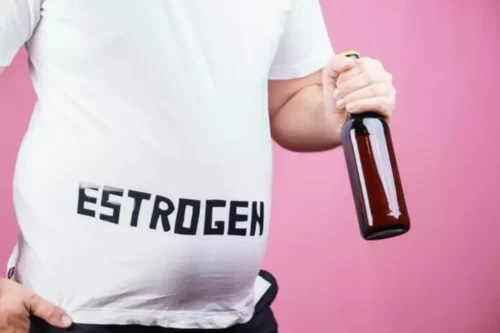
One 2020 study found potential benefits of combining in-person and online support methods. Knowing relapse signs can help you recognize your risk of relapse, and they may include a return to addictive thinking patterns and compulsive behaviors. Some studies find that this structure, along with a start date for sobriety and milestones, is important to some people in recovery.

More in Signs of Addiction
- When you get sober, you free up time in your life to partake in and enjoy new sober activities that go much farther in the way of improving your quality of life.
- If you’re involved in a 12-step program, you likely already know the importance of milestones.
- Changes in insurance coverage may open the door for increasing numbers of people to get the treatment they need.
- For alcohol withdrawal, symptoms can range from mild anxiety and shakiness to severe complications like delirium tremens.
- Looking back, I know that all of my actions during that time were based on fear.
- People in recovery from a substance use disorder frequently have problems meeting work-related responsibilities, maintaining employment, and managing money.
One of the last and most important facets of embracing being sober is that it offers you the opportunity to rebuild trust and repair past damages caused by addiction. By maintaining your sobriety, you can demonstrate your commitment to change and work towards restoring relationships that may have been strained or broken. By embracing sobriety, you can (and will!) experience a range of health benefits that enhance your overall quality of life. Relapse prevention techniques are effective strategies to help individuals stay away from addictive behaviors. Cognitive therapy can help you recognize and shift negative thought patterns and behaviors, empowering you to take control of your mental health. By recognizing our triggers, we can develop strategies to manage them and stay on the path to recovery.

Find Your Personal Triggers
You can’t fail at sobriety, you can only keep trying and keep growing. A journey can begin with community mutual-help groups, inpatient treatment, residential rehab, outpatient programs, and more. Depending on the severity of addiction and readiness to change, different options may be beneficial for different people. But seeking a professional opinion on where to get started can help alleviate and address your particular fears. The truth is, if sobriety really was that bad, nobody would stick around long-term.
Allow Yourself to Have Fun
If PAWS is severe or if you’re experiencing prolonged symptoms, a medical professional can help you work through them and remain in recovery without relapse. But in the majority of cases, the loss of inhibitions is not a good thing. Just because you will no longer get wasted and make poor decisions – this does not make you boring. Getting support doesn’t have to mean going to rehab, although that is an option. Support can also look like joining in-person and online support groups.
If left unchecked, anger can have a negative impact on your health and your lasting sobriety. You may also need to change your route to work or home in order to avoid any triggers, or people, places, or things that make you want to use drugs or drink again. Some of the immediate changes you will need to make will be obvious—like not hanging around the people that you used with or obtained drugs from. After all, you can’t hang around your drug dealer or old drinking buddies and expect to remain sober for very long. Post-acute withdrawal syndrome (PAWS) involves withdrawal symptoms that persist past the detox period. Such symptoms are often related to mood and may include irritability, anxiety, depression, sleep problems, and fatigue.

- With proper counseling and/or a good recovery program, you’ll learn important tools for navigating these relationships.
- If we’ve spent any amount of time playing with our brain chemistry, we can expect things to be a little out of whack when we stop.
- It’s not just a minor inconvenience; it’s often a significant hurdle in maintaining long-term recovery.
In fact, here’s a little secret – anyone fear of being sober who is charming drunk can be charming sober. After you’re more secure in your sobriety, you’ll find that you’re actually MORE charming than “drunk you” could ever be. With proper counseling and/or a good recovery program, you’ll learn important tools for navigating these relationships.
Social Challenges of Sobriety
Some people who move from a controlled and protective setting find themselves awash in the environmental cues that lead to their drinking. To begin, it can take several hours to sober up from alcohol. Then, the first few weeks of sobriety are when relapse risk is highest.
The Neuroscience of Pleasure in Sobriety
Some are structured in programs, such as the 12-step approach used by Alcoholics Anonymous and similar addiction recovery programs. Our hopes and dreams may have gotten stuffed down along the way during our descent into drugs or alcohol, too. It can be scary to confront ourselves and our dreams, and putting them off or procrastinating on them is a way to avoid putting the work in or fear of failure.